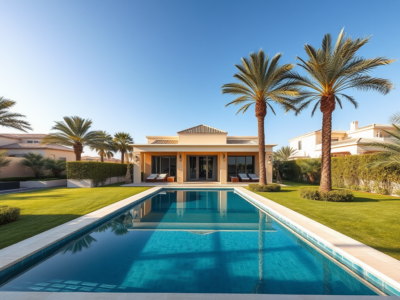Dubai’s long-term rental market is a dynamic and evolving landscape characterized by diverse accommodations, competitive pricing, and a rapidly changing demand. Understanding this market is crucial for expatriates, investors, and locals alike, as it offers significant opportunities for both living and investment. The rental market in Dubai is influenced by various factors including economic shifts, government regulations, and global events. This article delves into the essential aspects of Dubai’s long-term rental market, providing insights into trends, pricing, and what potential renters should consider.
Overview of the Long-Term Rental Market in Dubai

Dubai’s long-term rental market has witnessed substantial growth over the past decade, largely fueled by an influx of expatriates and professionals seeking new opportunities in the city. These newcomers are drawn to the strategic location, vibrant lifestyle, and tax-free environment that Dubai offers. As a result, the demand for rental properties—ranging from luxury apartments to affordable studio units—has surged. Moreover, government initiatives promoting remote work and tourism have further bolstered the rental market. The current market showcases a variety of choices, making it more accessible for a wide range of budgets and preferences.
Types of Rental Properties Available
In Dubai, renters can find a multitude of property types catering to different lifestyle needs and financial capabilities. Understanding these options is key to finding the right fit. The primary types of long-term rental properties include:
- Apartments: These typically range from studio to three-bedroom units and are available in both high-rise buildings and low-rise complexes.
- Villas: Ideal for families, villas offer spacious living environments, gardens, and often come with community amenities.
- Townhouses: A popular option among families, townhouses provide a balance between apartment living and villa space.
- Serviced Apartments: Typically fully furnished and offering hotel-like amenities, these are great for those looking for flexibility.
Rental Prices and Trends
The rental prices in Dubai fluctuate based on location, property type, and economic conditions. As of late 2023, the market has seen a mix of increases and decreases in rental costs. Prime locations such as Dubai Marina and Downtown Dubai continue to command higher rents, while areas on the outskirts tend to be more affordable. Factors influencing these trends include:
- Supply and Demand: A balanced market with adequate housing supply tends to stabilize prices, while increased demand can drive them up.
- Economic Conditions: Economic stability and growth in job opportunities usually lead to a greater influx of renters, positively affecting prices.
- Location: Properties closer to amenities, schools, and public transport generally attract a premium.
- Global Events: Economic fluctuations, pandemic aftermath effects, and geopolitical situations can dramatically impact rental trends.
Renting in Dubai comes with its own set of legal requirements and considerations that both landlords and tenants should be aware of. Understanding the legal framework is crucial to avoid disputes and ensure a smooth rental experience. Key legal aspects include:
- Tenancy Contracts: Rental agreements should be written and clearly state the terms of the tenancy, including rent amount and duration.
- Security Deposits: Typically, landlords require a security deposit of 5% to 10% of the annual rent to cover potential damages.
- Renewals and Terminations: Both parties must adhere to the stipulations around lease renewals and termination clauses, which must be outlined in the contract.
- Dispute Resolution: In case of disagreements, tenants can approach the Rental Disputes Centre for mediation and resolution.
Conclusion
Dubai’s long-term rental market offers a wealth of options for anyone looking to settle in this vibrant city. With a broad range of property types, fluctuating rental prices, and essential legal considerations, potential renters must conduct thorough research and maintain awareness of market trends. The right property can provide more than just shelter; it can enhance your lifestyle and offer new opportunities. Whether you are an expatriate, a local resident, or an investor, staying informed about Dubai’s evolving rental landscape is essential for making informed decisions.
Frequently Asked Questions
1. What is the average rental price for a one-bedroom apartment in Dubai?
The average rental price for a one-bedroom apartment varies by location; however, it can range from AED 50,000 to AED 100,000 per year in popular areas.
2. Are utilities included in the rental price?
Utilities are typically not included in the rental price; tenants are usually responsible for paying their own electricity, water, and internet bills.
3. Can I negotiate the rent price?
Yes, negotiating the rent is common in Dubai’s rental market, especially if you can demonstrate good financial stability and a long-term commitment.
4. What areas are recommended for families?
Some family-friendly neighborhoods in Dubai include Arabian Ranches, Jumeirah, and The Springs, known for their community amenities and schools.
5. How do I find a reputable real estate agent?
To find a reputable real estate agent, consider reading reviews, seeking referrals from friends, and checking for agents registered with the Real Estate Regulatory Authority.




